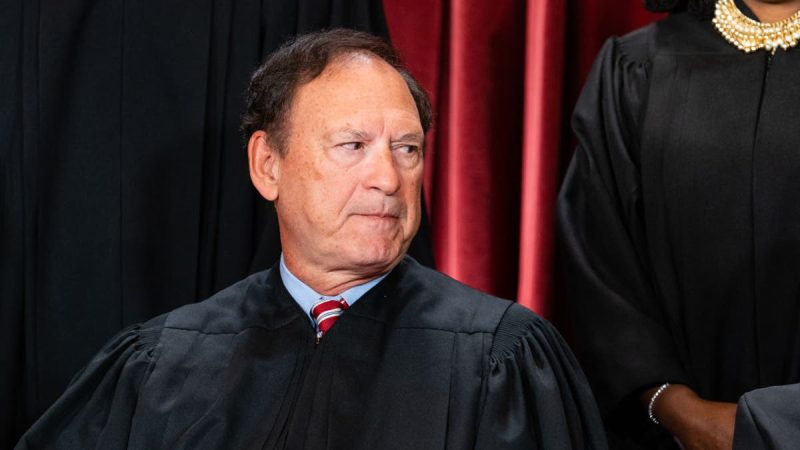

The announcement by Meta CEO Mark Zuckerberg that Facebook and Instagram would end their work with third-party fact-checkers and ease certain content restrictions was praised by some conservative activists, who cheered it as a ‘vindication’ for Supreme Court Justice Samuel Alito, who dissented from the rest of the court in late 2023 in a case involving content regulation that included a post by the former presidential candidate Robert F. Kennedy Jr.
The case centered on whether Meta was acting outside its scope when its platform, Facebook, temporarily removed a 30-minute video posted by Kennedy, which included vaccine misinformation and other false claims about COVID-19. The Supreme Court majority declined to take up the case without explanation, but Alito disagreed, writing as the sole dissenter for the court.
Alito, a George W. Bush appointee, blasted the video’s removal in a scathing dissent, saying that the platform had censored a type of political speech in its attempts to crack down on misinformation, and could therefore be seen as acting on behalf of the U.S. government and possibly causing what he described as ‘irreparable’ harm.
‘Our democratic form of government is undermined if government officials prevent a candidate for high office from communicating with voters, and such efforts are especially dangerous when the officials engaging in such conduct are answerable to a rival candidate,’ Alito said in the dissent.
‘I would allow him to intervene to ensure that we can reach the merits of respondents’ claims and to prevent the irreparable loss of his First Amendment rights,’ Alito added.
‘Because Mr. Kennedy’s arguments on the merits are essentially the same as respondents’, allowing intervention would not significantly affect petitioners’ burden with regard to that issue,’ Alito wrote. ‘But the denial of intervention is likely to prevent Mr. Kennedy from vindicating the rights he claims until the spring of 2024 and perhaps as late as June of that year. And by that time, several months of the presidential campaign will have passed.’
Zuckerberg announced earlier this month that Meta would end its previous content restrictions used on Facebook and Instagram — which were put into place after the 2016 elections — acknowledging in a video posted on social media that they had ‘gone too far’ and allowed for too much political bias from outside fact-checkers.
‘We’ve reached a point where it’s just too many mistakes and too much censorship,’ Zuckerberg said in the announcement.
‘The recent elections also feel like a cultural tipping point toward once again prioritizing speech. So we are going to get back to our roots, focus on reducing mistakes, simplifying our policies, and restoring free expression on our platforms.’
Meta will now replace that system with a ‘Community Notes’-style program, similar to the approach taken by social media platform X, he said. X is owned by Elon Musk, the co-director of the planned Department of Government Efficiency.
That news was praised by Mollie Hemingway, the editor-in-chief of The Federalist, who noted on X that the decision from Zuckerberg ‘vindicated’ Alito’s dissent. ‘Kind of crazy how Zuck was like ‘what they did had to be illegal’ but majority on Court was like ‘I mean, who can know?” Hemingway said of the Supreme Court’s decision not to take up the case.
Gunman shoots dead 2 Supreme Court judges in Iran’s capital before turning gun on himself, state media says
Two Iranian Supreme Court judges were shot and killed while a third judge was wounded Satu…






